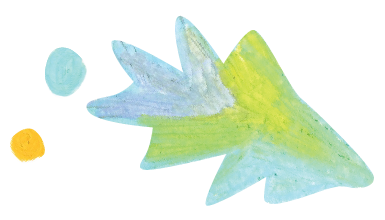Library
-
It can take a week to a year to introduce or reintroduce cats—you cannot rush the process. The cats must remain separated unless supervised. If there is steady progress but still specific contexts in which aggression continues, you likely need to consult a behavior professional who can recommend other strategies. Alternatively, the cats may need always to be supervised or separated to prevent conflict at high-risk times.
-
This handout summarizes the various forms of treatment for cats with asthma and includes a list of treatment instructions for home care. Treatment options include corticosteroids, bronchodilators, and inhaler use. Warning signs for cat owners to watch out for are included.
-
TTouch is a form of touch therapy devised and popularized in 1978 by Linda Tellington Jones, an equestrian with a long-standing interest in massage, training, and physical therapy techniques. TTouch is a simple, light massage technique in which the practitioner uses a clockwise circular motion of the fingers on the skin of the patient.
-
Controlled substances are medications or illicit drugs that affect the central nervous system and have the potential for abuse or dependence, both in humans and in animals. These drugs are often needed to manage pain and other conditions in pets and are relatively safe when used appropriately and under the guidance of a veterinarian. Be sure you understand the risks and responsibilities associated with controlled substance use.
-
Cats exhibit a wide range of behaviors that are quite normal yet may be considered undesirable by the people with whom they share their homes. Most of these behaviors develop to satisfy an innate need. Rather than trying to stop your cat from engaging in instinctual and naturally rewarding behaviors, it is essential to provide your cat with substitute behaviors and outlets that satisfy your cat’s needs.
-
Emergencies in Cats
Las urgencias médicas se producen de forma repentina y sin avisar. Es importante que todos los propietarios de gatos tengan unas nociones básicas sobre las urgencias veterinarias más comunes y sobre primeros auxilios. Para más detalles sobre como realizar RESPIRACIONES DE RESCATE y RCP en gatos, consulte nuestra página Primeros Auxilios en Gatos.
-
There are five primary reasons for vaccination failure. Vaccine inactivation is one reason and is most commonly caused by warming during shipping and handling. In addition, vaccines are not always 100% effective. Cats may also be unhealthy or too young, leading to vaccine failure. Interference by maternal antibodies can lead to the vaccine being blocked. Lastly, cats receiving overwhelming exposure to a virus may have a failure in the effectiveness of the vaccine.
-
Vaccines are necessary to reduce infectious disease-caused illnesses in cats. They work by stimulating the body's immune system to recognize and fight a particular microorganism such as a virus, bacteria, or other infectious organism. The vaccine helps the body prevent infection or lessen the severity of the infection, and promotes rapid recovery.
-
Vaccines for Cats
Recientes avances en la medicina veterinaria han resultado en un aumento en el número y tipo de vacunas disponibles para los gatos. Además cada día van apareciendo mejoras que hacen que las vacunas sean más seguras y eficaces.
-
Vomiting in Cats
Un vómito es la expulsión activa de la comida desde el estómago. Los vómitos pueden ser causados por problemas en el estómago, pero también pueden presentarse como signo clínico de muchas otras enfermedades y problemas. El vomitar no es una enfermedad específica por sí mismo. Los gatos vomitan con relativa facilidad.

